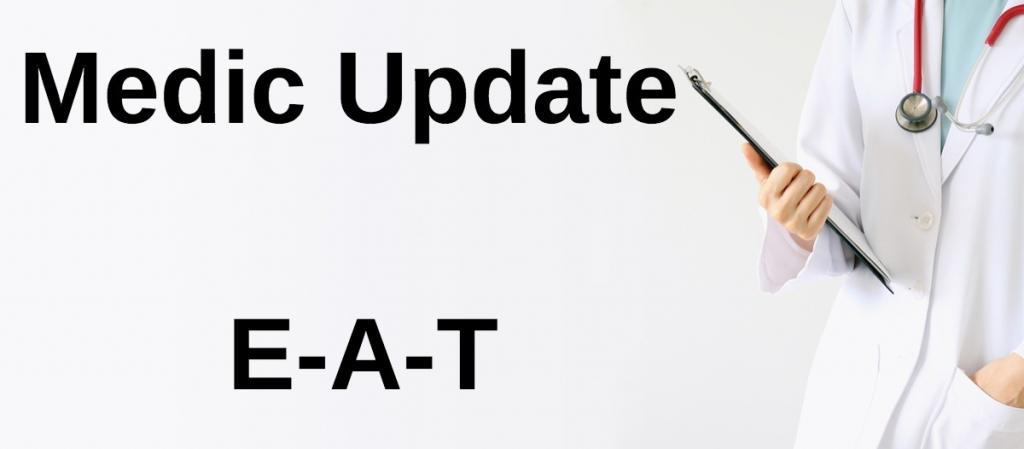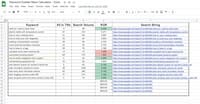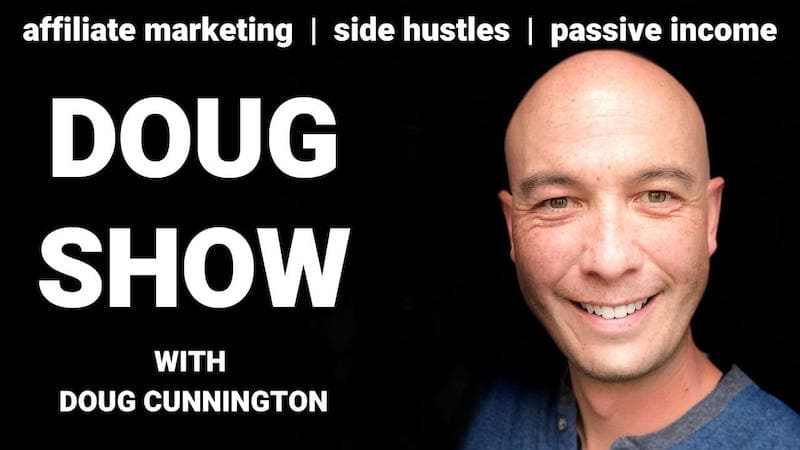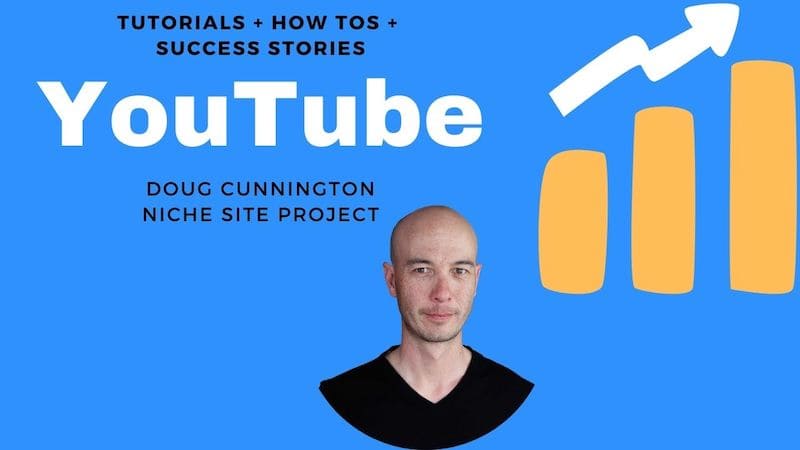How can you make your affiliate site trustworthy? That’s what this post covers, and why you want to earn the trust of your visitors and Google.
You learn about the:
- The so-called Medic Update
- Google Rater Guidelines and E-A-T
- 3 Ways to Demonstrate and Borrow Expertise and Authority
- 6 Ways to Build Trust
The Medic Update
This algorithm update rolled out on August 1, 2018, and wasn’t specifically targeting medical and health sites. But when people started analyzing the impacts, those industries seem to have been hit the hardest.
Other sites were impacted as well, mostly as it relates to niches and industries that are “Your Money Your Life” (YMYL). These include (per SEMRush):
- Shopping or financial transaction pages
- Pages that offer financial information, eg: investment or tax information
- Pages that offer medical information about specific diseases or mental health
- Pages that offer legal information about topics
- Any page that has the potential to be dangerous or detrimental if it possessed low levels of Expertise, Authority, and Trust, or “E-A-T”
Basically, any site that has information that may lead to a negative outcome if nonexperts are dispensing advice.
One of the interesting parts of this algorithm update was that it doesn’t have a quick answer to explain it across the board. For example, previous updates could be quickly summarized…
- Panda is related to low-quality content.
- Penguin is related to link schemes and keyword stuffing.
- Hummingbird is related to searcher intent.

Medic is related to a nebulous set of criteria that isn’t easy to explain since the concepts of E-A-T that may be considered aren’t immediately obvious. Other algorithm updates could be investigated by looking at backlinks or duplicate content — Simple.
Google Rater Guidelines
In 2015, Google released the Rater Guidelines (take a peek, it’s long…) and it was last updated in July 2018.
Google hires evaluators that look at the results to see how the algorithm is working. The evaluators don’t impact the algorithm directly, but they give Google an idea about the quality of how the algorithm is performing.
The Guidelines explain that credibility is essential and that high-quality content, one of the top three ranking factors, should demonstrate:
- Expertise
- Authority
- Trust
Let’s look a bit deeper.
Building Expertise, Authority, Trust
Who are the experts in the niche? Who has authority? Who do people trust?
Experts that people trust (for a given topic) should be creating, editing, or at the very least cite them in your content.
For Example
Check out all the links and references at the bottom of this post. I’m knowledgeable about SEO, but I know it’s great to create a resource that gives you a starting point to learn more.
Other Ideas
- You can also “borrow” expertise by interviewing experts, authors, or influencers in the niche. So the experts are out there and if you can leverage their knowledge that helps. If you’re thinking it’ll be hard to get an expert, it’s not as hard as you think… Authors always want to talk about their books even if they aren’t actively promoting anything. Influencers (podcasters, YouTubers, bloggers, etc…) also want to talk about their area of expertise and continue to demonstrate their influence.
- You can link to the best resources on the topic. Imagine how a professional journal cites sources. Generally, you can provide your references and give people the information to learn more if they want.
- You should note if you or someone that is on your content team has credentials related to the area of expertise. That could be listing their job title or professional certification (i.e., PMP) in the byline.
Can’t You Fake E-A-T?
The E-A-T factors seem like they can be faked pretty easily by following the three suggestions above.
However, the Google’s Search Quality Evaluator Guidelines also advise the evaluators to check on the online reputation of the site, expert, or trustworthy person.
So this is a manual evaluation and, again, doesn’t directly impact the algorithm. The evaluator goes out and looks up information on the writer or the reputation of the site or company.
That means impacted sites couldn’t make some changes and recover.
That points to a variety of factors contributing to the ranking factors and E-A-T of a site.
In short, everything matters.
- Content.
- Links. Good Links, not crappy, low-quality links.
- The credibility of the content.
I assume that if your site great in some areas but bad in others, then it may balance out. If your site is poor at all the factors compared to the competition, you’ll have an issue.
Other Ways To Build Trust For Your Site
About Page
I’ve been talking about the importance of the About Page of a site for over a year (in my affiliate site teardowns). You can show off your expertise, authority, and trust if you have a solid about page.
Here are a few other tips relating to your biography and about page:
- Link to the About Page from all the other content.
- Make sure you have an Author Box or byline with some details on every post.
- Show of your credentials in both cases.
- Post an image of yourself or use a stock image to support the persona of the site.
Contact Page and Privacy Page
Your site should have both of these to add trust. They are crucial to e-commerce sites or sites that have some transaction taking place.
Update Old Content To Ensure Accuracy
I’m guilty of having old content that needs to be updated. After some time passes, it’s pretty easy to get behind on the spring cleaning that needs to happen on a website.
It’s worthwhile to audit your site once a quarter or every six months to see if content needs to be:
- Updated and improved
- Deleted
Sometimes deleting old content and improving out of date content will improve rankings and traffic. You’re serving the visitor better if you take care of your content.
Disavow Unnatural Links and Otherwise Bad Links
If you have some unnatural links, you should probably disavow them. If they aren’t causing any issues currently, you can probably get away with not disavowing the links.
 But over time, your site can accumulate more bad, spammy links and there’s a cumulative effect.
But over time, your site can accumulate more bad, spammy links and there’s a cumulative effect.
It’s not a big deal if you have a handful of bad links, but if you have dozens of bad links and they’re starting to make up more of your overall backlink profile, that’s a bad thing. At some point, the links may reach the tipping point that earns a manual penalty.
Fix Grammar, Punctuation, Misspelled Words
Mistakes happen, and even if you have an editor, your site may still have some grammar or spelling issues.
I have seen improvements in rankings just by fixing mistakes. I instructed my VA to go through all the posts on one site and fix the mistakes.
I’ve also heard the same results from a few people, including Duke.
I recently started using Grammarly and LOVE IT. I’m an affiliate, and if you buy through this link, I’ll earn a commission. Grammarly works with WordPress, so it was super easy for my VA to fix all the mistakes.
The free version of Grammarly will work, but I upgraded to the premium version for some added functionality. If you aren’t a native English speaker, then Grammarly should get you 95% of the way, even with the free version. The paid version is definitely worth the cost.
Page Speed and Mobile-First Indexing
Page Speed is all about great user experience. From Google’s perspective, they want people to use their search engine. So Google wants to show results that help the searcher and load fast to ensure a great user experience.
No one likes a slow site, and nowadays people are impatient. I know — because I’m one of those impatient people. If a site doesn’t load fast, or if a YouTube video takes a few seconds to load, I bounce! There are so many other distractions to grab my attention. You can check your site’s speed on Google Tool, and I like to use Pingdom as well.
Conclusion
Take some of the suggestions in the post to improve the authority and trust for your site.
Even if you weren’t impacted, you should work to demonstrate the authority for your site because I expect this trend will continue in future algorithm updates.
What do you think??
Leave a comment:
- Do you have observations about the algorithm updates since August 1, 2018?
- Let me know if you were impacted.
- Please share any ways you found to build trust for your sites.





Comments on this entry are closed.
I’m not sure if I have got myself in trouble or not here Doug!
I started my affiliate site less than a month ago and not knowing about the new E-A-T update chose a niche that is kind of medical related 🙁
I’m sure you can probably see it linked from this comment. I don’t want to give up on the idea as I can write about it and it is not to saturated, however I’m now worried I may be just digging myself in deeper?
I would avoid it personally, but feel free to go after it! You can use the ideas from the post to build the trust and credibility.
You might be digging in deeper, yes. But you won’t know until you try…
I’d suggest to never share your site on an internet marketing blog in the comments like this — so I removed it for you. 🙂
Ok thanks Doug, I’m not sure what to do to be honest. I have already put in quite some work over the last month building it. I may just try building some backlinks and then implementing the tips from this blog post. I will then leave it for a month or so and see if any of the pages start ranking better. I already have some pages at 30-50 in the seeps for various keywords so I will take note and then check back later. It will be a shame to give in as it has made profit on paid traffic.
Doug, I also believe it’s important to show the authority of the person who writes the post, so a manual evaluator would look for my name and see if I exist on other places like university websites, academic sites, linkedin etc. where relevant.
So they simply want real people with real skill sets and qualifications creating the relevant content.
Shaun
Yes, Shaun! I agree with that — someone should be able to find evidence to support your authority.
The 27 Sept update hit me hard and I haven’t recovered. It’s been pretty demotivating to be honest. I wish I could just pinpoint something but it’s obviously not that simple, and can be hard to decide how to respond. I think my priority will be going back to old posts and improving and updating content. I haven’t consistently added references to the end of my posts, so might add those. I have some some fitness/health related stuff, maybe that’s something to look at too.
Stephen, bummer to hear! I wonder how long it takes to see some recovery after making changes.
I have heard people seeing changes over a few weeks, but it’s not clear if the changes were related to algorithm updates or rollbacks.
I love the new update from Google… anything that improves the serps for the end user. And this post is a great way to outline what would be required to adapt.
May the best site win!
Tom, Yes! It’s great when it works out, but I think I’ve seen some cases where there was a shuffle in the SERPs yet the top results were lacking in substance. I think those are the exception, though.
Got hit hard by the update as well. Has been tough to recover. Did add an author box with a link to my about me page within the box, and I worked on improving site speed.
I am interested in your take on length of the author box. Do you think there is benefit to writing a lengthy one as long as it is relevant?
Thanks Doug!
Marcus, Sorry to hear!
I think a couple of sentences, maybe 3 should be about right, to demonstrate the writer’s expertise. But I haven’t done any research or testing… Maybe you can look to see what an authoritative site would do, like WebMD, for their bio sections.
This post gave me some insight into the previous updates and the latest one. I blog about essential oils and toxins. I don’t think I was affected but you bring up some good points about sourcing articles. I’m moving away from putting them in the body of my post and listing them at the end. I like how you have yours listed.
I’ve gotta make a schedule for myself to incrementally go back to update some of my really old posts.
I use Grammarly, too.
I enjoy reading your blog and being on your email list. I use your KGR all the time and it works!
Thanks, Stacy, glad to have you in the community.
You’ll notice that I linked in the content sometimes and at the end for some of the other resources. I’m not sure what the best way is, but this seems to work okay from a readability standpoint.
Great article Doug, I just want to mention that for some reason or another grammarly does not function so well with Thrive themes.
Derek, thanks for checking it out!
Right, good point about Grammarly + Thrive. I remember for a while, a long time ago, that Grammarly would totally erratic and my cursor would move all over the place in WordPress & Gmail. It was very annoying so I stopped using it.
Definitely test the free version of Grammarly before buying to make sure it’ll work for you.
Hi Doug,
Great article!
Have just written my first review and was planning to write the references at the end of the article in APA style (like we did with university papers). Did google and tried to find the correct way to cite my sources, but was not so easy to find. Liked your style. Do you know about any official «rules» for Internet reference listing?
Thank you!
There aren’t any specific rules, but citing your source by linking is widely accepted. If you’re using someone’s image, then it’s best to ask permission and link. However, some people don’t ask (which is a bad idea), then just use the image and link. But if you’re just citing references, links should suffice.
Great article Doug. Got an overview of the subject.
I got a health domain in June/July some time and was busy with my marriage and could not start working on it. Later after hearing of this update I m in a doubt to start. I basically want to make a health related affiliate site for long term. What do you suggest? How about going with YouTube traffic.
If I creat a YouTube video, is it good to link to our website or amazon affiliate links in the description? Which works better?
One last thing, How can we achieve EAT on YouTube, just for future safe proof YouTube channel.
Thanks for checking it out!
I can’t offer much advice — not enough details. But you can review your competition and your site and what you really want to do. I’m sure if you’re really interested in a topic you can do it.
I don’t suggest YouTube as an alternative. I don’t know about what’s better for YouTube affiliate links, but I would guess that links in the description would convert better.
You can use the same ideas for EAT for YouTube, but I don’t think it’s as important. Search on YouTube isn’t the same as Google so I’d focus on keeping the viewer metrics high.
I run a running blog, and I did not see much of drop in traffic. Could be because more than half of my articles are informational.
This post is very insightful. I will go back and check if I can improve any of my posts using these insights.
Thank you so much for sharing
Hi Doug,
Long time follower, first time “reaching out”! I’m a SAHM in the natural health niche, and my site got SLAMMED. Four months later, and I’m still trending downwards and down to just 3k pageviews/month.
I have updated my About page, hired a few doctor writers and put their bios on the about page, and added an author box with a description of why I’m qualified to speak on the subject. I also continue to put out helpful, well-written (been a copywriter for 7 years), long-form content.
If you were in my shoes, how long would you wait before you threw in the towel? We’re 4 months past, and my stats look like a doodle of a downhill slope. This website is my “baby,” and I really don’t want to give up. However, I also can’t keep pouring time & money into a site that’s not profitable 🙁 Thoughts?
Jordan, great to hear from you! Sorry to hear about your site…
I think I’d draw some line where you finish up on the correction efforts, then wait. There’s a chance the algorithm will change again, of course totally independent from what you’re doing.
How’s the backlink profile? What’s the competition like, especially sites that moved up and/or replaced your site for some key terms?
I wish I could recommend more, but this update seems to be looking at everything as a unit for your site, like more than previous updates where we could see the correlation with anchor text or on page quality.
Hey Doug,
I didn’t have an idea about the medical update. I have an affiliate website in the sensory deprivation/mental health niche and reading your post provided some great insights that I will implement in action.
This website is like an never-ending encyclopedia for me. Always glad to be here and see you bringing this badass content.
i was also hit hard by sep update and havent recovered yet even after applying lot of fixes,has anyone seen improvement after applying any fix?